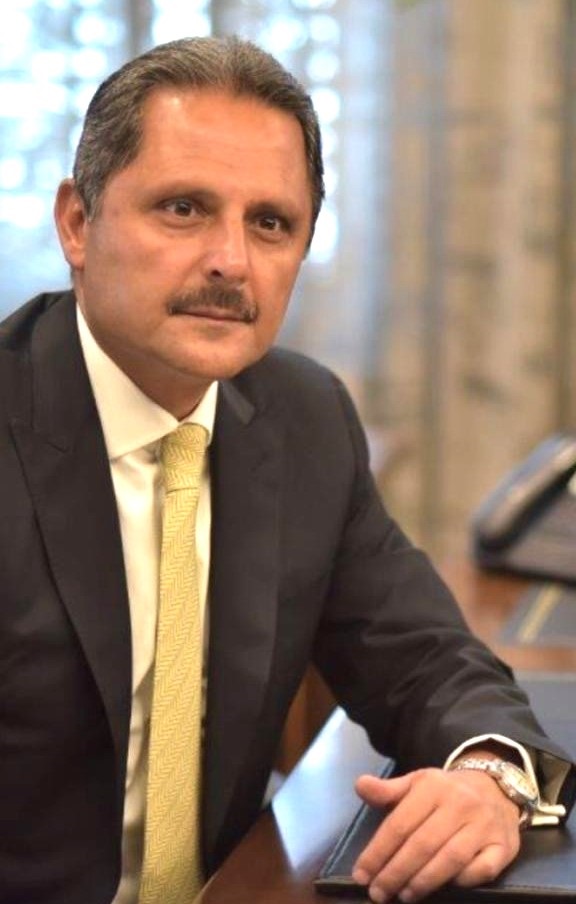LOC09:52
06:52 GMT
 Former chairperson of the Banks Supervision Commission Samir Hammoud
Former chairperson of the Banks Supervision Commission Samir Hammoud
News Feature by Fawaz Al-Otaibi
BEIRUT, Dec 6 (KUNA) -- Lebanon has been suffering from severe multi-aspect crises since 2019 when dramatic fall of the national currency value began; however, experts believe that there are some exits out of the bleak tunnel.
The multi-shape and thorny issue, classified by the World Bank as one of the hardest crises witnessed worldwide since the 19th century, persists despite bids by the government and the Central Bank of Lebanon to resolve it and relieve the Lebanese people who have been battered with a series and recurring crises since outbreak of the civil war in 1975.
Amid the bleak conditions, a glimmer of hope lies in a salvage scheme, a plan to restructure the banking sector, a term set by the International Monetary Fund (IMF) to bail out the country, and adopted by the government as part of an aspired package of financial reforms to remedy the ailing economy.
"The current monetary crisis is not hard to resolve," believes Samir Hammoud, a former chairperson of the Banks Supervision Commission as he has noted in an exclusive interview with Kuwait News Agency (KUNA). Solutions, he has added, should not contradict with the constitution, Lebanon's free system and preservation of the private property.
Lebanon is gripped with monetary, banking, financial, economic and political problems. "The three latter topics are the most crucial and their tackling warrants consensus on establishing the State in the sound sense," Hammoud told KUNA, alluding roots of the economic crisis to the 80s of the past century when banks used to hefty borrowed from the central bank without coverage in the US dollars.
The banks had received deposits in the USD for lucrative interests and shifted the money to the central bank that was regularly lending the State that in turn heavily depended on this financial resource, instead of funding itself from other sources such as taxes and proceeds from key sectors such as the ports.
"This monetary policy has led with time to the crisis," Hammoud affirmed, adding that the banks currently stopped paying large amounts of US dollars to the clients because their funds are with the central bank or in the form of debt bonds that are not easy to liquidate to meet the clients' needs.
On possible remedies, the former banks supervision chief proposes that the central bank establish a local bank that buys deposits of individuals and institutions from the banks in hard currencies to relieve them of prospected shut-down.
Hammoud believes that once the banks are relieved of the difficult assets, they can recapitalize themselves according to the Basel norms -- as the WB also concurs. However, he indicated that such an approach may be thorny, noting that it requires that the banks conduct deleveraging, or "hair-cuts," of the assets "so they may be able to re-capitalize."
As to figures, he has assesses that the private sector's debts amount to USD eight billion, those of the State for the central bank some USD 70 billion. Clients used to have up to USD 95 billion worth of deposits in the banks, and by contrast, the banks now have only USD three billion where those of the central bank amount to USD seven billion.
"This is where the financial gap has taken shape amounting to USD 85 billion with deduction of the central bank and the banks' deposits from the total of the clients funds amounting to USD 95 billion," he clarified.
Lebanon's gross domestic product reached approximately USD 20 billion in 2022. The GDP was estimated at USD 54 billion before start of the financial crisis late 2019, marked with public outcries and wide-scale demonstrations by citizens suffering from its impact on their living conditions and purchasing power.
Hammoud protested that he noticed "erroneous practices" in the banking sector over the past four years, suggesting that there must be legislations stipulating that the banks' assets must be larger than their liabilities.
Another prominent expert, Jassem Ajjaqa, a former adviser to the minister of economy and economy professor at the Lebanese University, said in an interview with Kuwait News Agency that the banks' restructuring is necessary and crucial, provided "there is willingness to rescue the sector but the issue in this respect lies in the methods."
Ajjaqa opines that the restructuring scheme should be carried out in "a scientific method without political calculations," indicating in this respect at a plan that had been presented by the US-headquartered financial advisory firm Lazard, essentially recommending that banks must be shut down and only five new ones be established.
The banks' restructuring must be done according to scientific criteria after auditing accounts and deposits by a reliable foreign financial company. Later on, a decision can be taken to choose which banks must cease to exist, those that can be integrated with others and those that are entitled to swell their capitals, he said.
It is quite difficult to revive the Lebanese economy without restructuring the banks, Ajjaqa has emphasized in the interview with KUNA.
"What's at stake in such a process is preservation of the clients' deposits, he has continued.
Meanwhile, attorney Dina Abu Zor, member of the Commission for Protecting Depositors' Funds, established by the lawyers association, told KUNA that remedy of the banking issue begins with enacting legislations in parliament. The responsibility of paying the clients firstly hinges on the banks and secondly on the central bank, she said, utterly rejecting the approach to coerce the depositors incur losses in their savings. (end)
fz.rk